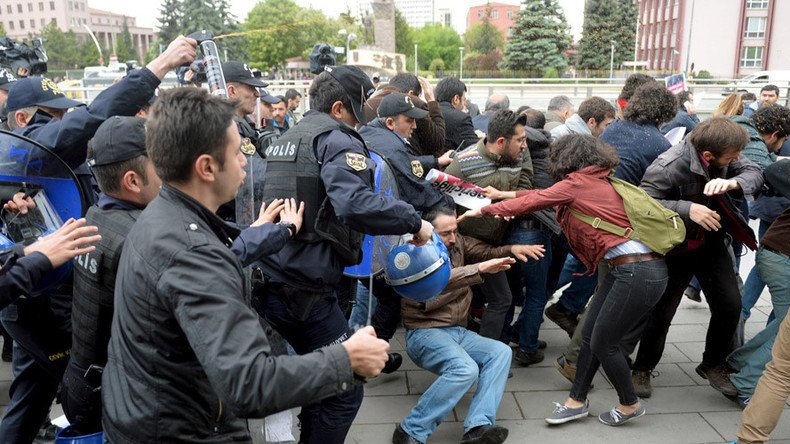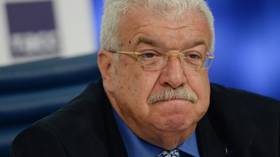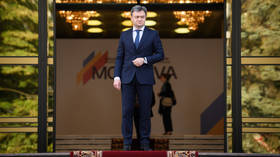Turkish police disperse pro-secularism rally protesting suggested religious constitution

Turkish police used tear gas and rubber bullets to disperse a rally of people, who protested a call for the country to adopt a religious constitution.
The small crowd of some 100 people came to the parliament building in Ankara on Tuesday after its speaker Ismail Kahraman said the new Turkish constitution, which is currently being developed, should not have any references to secularism.
‘We are a Muslim country’: Turkey’s parliament speaker advocates religious constitution
The group chanted the slogan "Turkey will remain secular" in support of one of the founding principles of modern Turkey.
#Ankara: #TBMM Başkanı'nın #Laiklik karşıtı açıklamasına karşı #TBMM'ye yürüyenlere polis saldırdı. @BirlesikHaziranpic.twitter.com/3zqDNsZvYP
— İstanbul Indymedia (@Istanbul_Indy) April 26, 2016
The police broke up the gathering and prevented the protesters from speaking to the press, AFP reported. Some people were arrested.
A similar protest in the coastal city of Izmir, one of Turkey's most secular cities, ended with police intervention too.
Kadiköy..#Laiklik için yürüyoruz !
— ASİL (@_AsilTurk) April 26, 2016
Polis saldirmaya bsdlady pic.twitter.com/GDilljLSoc
Kahraman’s suggestion was harshly criticized by the Republican People's Party (CHP), which was founded by Mustafa Kemal Ataturk, the man who introduced secularism in Turkey as part of sweeping political reforms in the 1920s.
Protest posts also flooded Turkish social media, as people shared old Kemalist propaganda posters and “I love secularism” pictures.
The controversial suggestion was publicly rejected by some senior officials of the ruling AKP party. President Tayyip Erdogan defended secularism by saying that the Turkish state should “have an equal distance from all religious faiths” while the head of the constitutional committee said no plans were made to drop secularism out of the draft.
Prime Minister Ahmet Davutoglu reassured the Turkish people on Wednesday that the constitution would remain secular.
Kahraman said he was expressing his personal views and not those of his party. He said he believed that secularism limited freedoms in the country and “set people against each other.”











